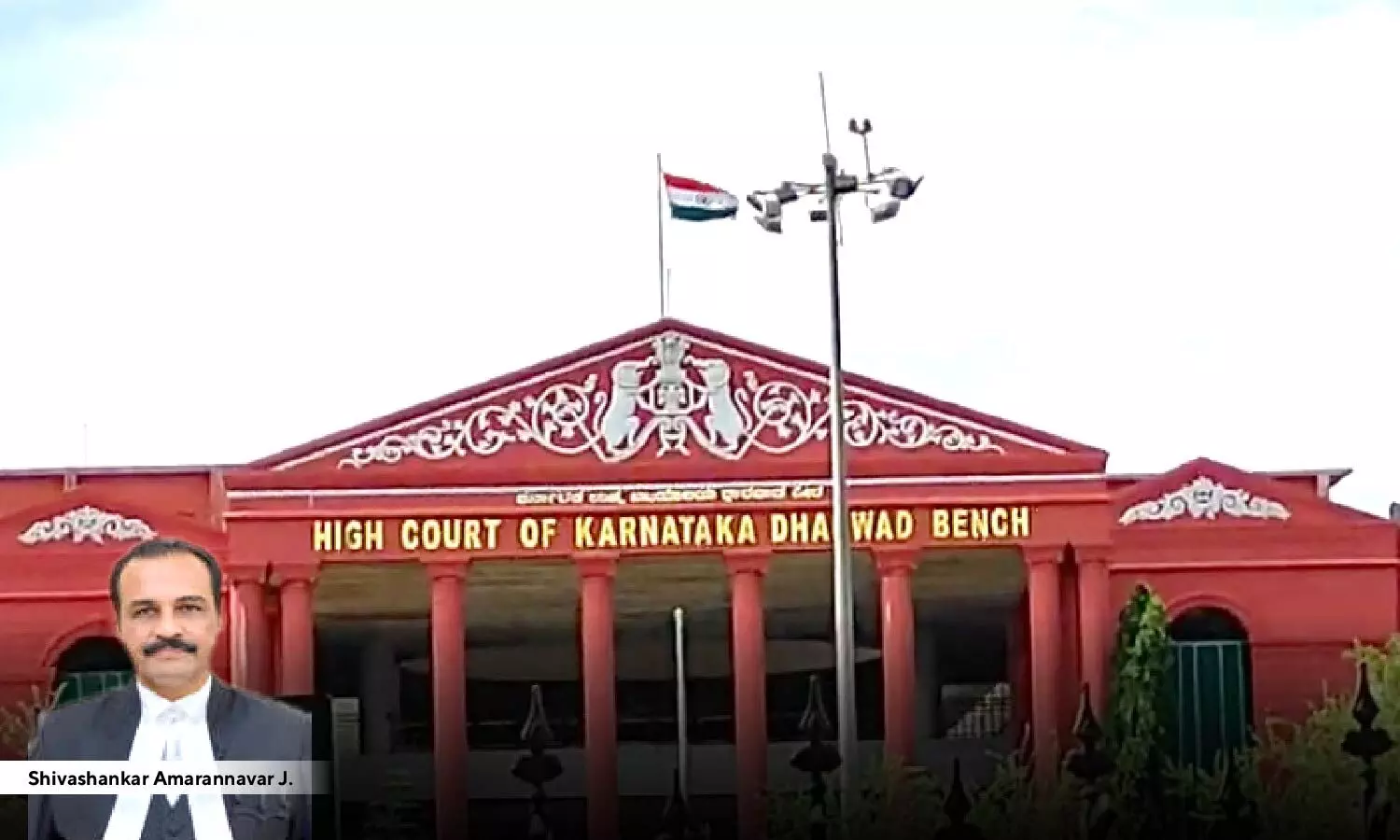
There Is No Limitation Provided For Filing Complaint U/S 33-A Of Industrial Disputes Act: Karnataka High Court
 |
|The Karnataka High Court observed that there is no limitation provided for filing the complaint under Section 33-A of the Industrial Disputes Act, 1947 (ID Act).
The Dharwad Bench observed thus in a writ petition filed by the Divisional Controller (South), N.W.K.R.T.C. Belagavi Division against a workman to quash the award of the Industrial Tribunal.
A Single Bench of Justice Shivashankar Amarannavar held, “The complaint made by the respondent was under Section 33-A of the Act. There is no limitation provided for filing the complaint under Section 33-A of the Act. To consider the contention of the learned counsel for the petitioner, it is necessary to extract Section 2(A) and Section 33-A of the Industrial Dispute Act."
"Admittedly, in the Industrial Dispute No.148/2005 relating to the charter of Demands was pending as on the date of dismissal of the respondent and the said dispute is raised by KSRTC Staff and Workers Federation. In view of the pendency of the said Industrial Disputes, the petitioner-Corporation ought to have obtained approval of the Tribunal for dismissal of the workman in compliance of Section 33(2)(b). The petitioner-Corporation did not seek approval as required under Section 33(2)(b) of the Act and therefore, order of dismissal of workman is void and non-est”, it added.
Advocate S.L. Matti appeared for the petitioner while Advocate R.H. Angadi appeared for the respondent.
In this case, the respondent workman who was working as a driver in the petitioner Corporation remained absent for duties without taking prior permission from his superiors or submitting leave application. On the report of Depot Manager, a call notice was issued to the workman, directing him to report for duty. The workman neither replied to the said notice nor reported to the duty and therefore, Article of Charges was issued to him along with statement of imputation. After receipt of Article of Charges, workman did not submit his reply and therefore, the disciplinary authority appointed enquiry officer for domestic enquiry of unauthorized absence of workman and also appointed Presenting Officer. The enquiry notice was issued to the workman through paper publication and the enquiry officer held enquiry and submitted enquiry report.
A show cause notice was served on the workman but he did not choose to give any reply to it and the disciplinary authority dismissed him from service of the Corporation. He filed a complaint under Section 33-A of the ID Act for setting aside the order of dismissal and the Tribunal allowed the said complaint in part and set aside the dismissal order. It directed the petitioner-Corporation to reinstate the workman in his original post with continuity of service on the ground that approval was required under Section 33(2)(b) of ID Act and the same was not obtained by the Corporation. The said order of the Industrial Tribunal was questioned by the petitioner before the High Court.
The crucial question that arose for consideration before the court was whether non-compliance of provisions of Section 33(2)(b) of the Act, by the petitioner-Corporation before placing the order of dismissal would render the order of dismissal void and non-est.
The High Court in the above regard noted, “Sub section (3) of Section 2-A of the Act provides limitation of three years to make an application as referred to in Sub Section (2) from the date of discharge, dismissal, retrenchment or otherwise termination from service as specified in the Sub section(1). The said limitation of three years is for filing an application under Sub section (2) of Section 2-A. There is no limitation provided for raising the Industrial Dispute under Sub section (1) of Section 2-A. The limitation provided under Sub section (3) is with regard to filing of an application by the workman under Sub section (2) of Section 2-A. What is referred in Clause (b) of Section 33-A by the term “shall adjudicated upon the complaint as if it were a dispute referred to or pending before it.”
The Court said that there is no limitation for referring a dispute and the term “shall adjudicated upon the complaint as if it were a dispute referred to or pending before it is in accordance with provisions of this Act” only indicates the procedure to be followed by the Tribunal/Labour Court.
“Therefore, the contention of the learned counsel for the petitioner-Corporation that the limitation contained under Sub Section (3) of Section 2-A of the Act is also applicable to the complaints under Section 33-A of the Act has no merit”, it concluded.
Accordingly, the High Court dismissed the writ petition.
Cause Title- The Divisional Controller (South) N.W.K.R.T.C. v. Vasant B. Jogi